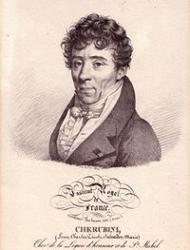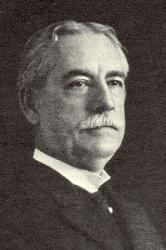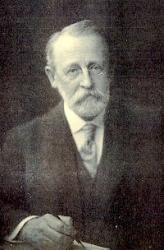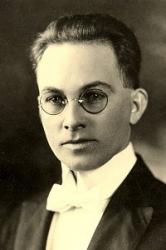Planning worship?
Check out our sister site, ZeteoSearch.org,
for 20+ additional resources related to your search.
- |
User Links
Person Results
Robert H. Wilson
Person Name: Robt. H. Wilson Topics: Aspirations For Christ; Aspirations For Heaven; Assurance Declared; Assurance Enjoyed; Christ Communion with; Christ Grace and Love of; Christ Preciousness of; Christ Providences of; Christians Conscious of Safety; Christians Death of; Christians Happiness of; Christians Heirs of Heaven; Christians Saved by Grace; Comfort in Trials; Death Of Saints; Faith Confidence of; Faith Walking by; Glory of God In Creation; God Guide; God Loving and Merciful; Gospel Freeness of ; Heaven; Life Everlasting ; Lord's Supper; Nature An Emblem of Grace; Resurrection; The Righteous Honor and Safety of; Worship Grace Needed for Composer of "[The Lord's my Shepherd, I'll not want]" in Bible Songs
Robert H. Wilson
Maria Luigi Cherubini

1760 - 1842 Person Name: Cherubini Topics: Afflictions Watchfulness in; Aspirations For Holiness; Aspirations For Peace and Rest; Assurance Declared; Blessedness Of Those Fearing God; Christ Communion with; Christ Light and Guide; Christ Prophetic Office of; Church Covenanted; Covenant Keeping; Covenant Of God; Covenant Promises; Deliverance From Sin; Godly Fear Blessedness of; God Attributes of; God Love and Mercy; Gospel Freeness of ; Gospel Privileges of; Gospel Sanctifying and Saving; Grace Sustaining; Mercy of God Prayer for; Pardon Sought; Praise For Spiritual Blessings; Prayer confidence in; Prayer For Christ's Sake; Prayer For Deliverance from Trouble; Salvation From Sin and Trouble; Salvation Prayers for; Sin Salvation from; Trust in God Expression of; Truth Composer of "DALLAS" in The Psalter Luigi Cherubini (Italian: [luˈiːdʒi keruˈbiːni]; 8 or 14 September 1760 – 15 March 1842) was an Italian composer who spent most of his working life in France. His most significant compositions are operas and sacred music. Beethoven regarded Cherubini as the greatest of his contemporaries.
Cherubini was born Maria Luigi Carlo Zenobio Salvatore Cherubini in Florence. There is uncertainty about his exact date of birth. Although 14 September is sometimes stated, evidence from baptismal records and Cherubini himself suggests the 8th is correct. Perhaps the strongest evidence is his first name, Maria, which is traditional for a child born on 8 September, feast-day of the Nativity of the Virgin. His instruction in music began at the age of six with his father, Bartolomeo, maestro al cembalo ("Master of the harpsichord", in other words, ensemble leader from the harpsichord). Considered a child prodigy, Cherubini studied counterpoint and dramatic style at an early age. By the time he was thirteen, he had composed several religious works.
In 1780, he was awarded a scholarship by the Grand Duke of Tuscany to study music in Bologna and Milan. Cherubini's early opera serie used libretti by Apostolo Zeno, Metastasio (Pietro Trapassi), and others that adhered closely to standard dramatic conventions. His music was strongly influenced by Niccolò Jommelli, Tommaso Traetta, and Antonio Sacchini, who were the leading composers of the day. The first of his two comic works, Lo sposo di tre e marito di nessuna, premiered at a Venetian theater in November 1783.
Feeling constrained by Italian traditions and eager to experiment, Cherubini traveled to London in 1785 where he produced two opere serie and an opera buffa for the King's Theater. In the same year, he made an excursion to Paris with his friend Giovanni Battista Viotti, who presented him to Marie Antoinette and Parisian society. Cherubini received an important commission to write Démophon to a French libretto by Jean-François Marmontel that would be his first tragédie en musique. Except for a brief return trip to London and to Turin for an opera seria commissioned by the King of the House of Savoy, Cherubini spent the rest of his life in France where he was initiated into Grand Orient de France "Saint-Jean de Palestine" Masonic Lodge in 1784.
Title page of the first edition of Cherubini's Médée, full score, 1797.
Cherubini adopted the French version of his name, Marie-Louis-Charles-Zénobi-Salvador Cherubini; this appears in all extant documents that show his full name after 1790, though his Italian name is favored nowadays. Performances of Démophon were favorably received at the Grand Opéra in 1788. With Viotti's help, the Théâtre de Monsieur in the Tuileries appointed Cherubini as its director in 1789. Three years later, after a move to the rue Feydeau and the fall of the monarchy, the company became known as the Théâtre Feydeau. This position gave Cherubini the opportunity to read countless libretti and choose one that best suited his temperament.
Cherubini's music began to show more originality and daring. His first major success was Lodoïska (1791), which was admired for its realistic heroism. This was followed by Eliza (1794), set in the Swiss Alps, and Médée (1797), Cherubini's best-known work. Les deux journées (1800), in which Cherubini simplified his style, was a popular success. These and other operas were premièred at the Théâtre Feydeau or the Opéra-Comique. Feeling financially secure, he married Anne Cécile Tourette in 1794 and began a family of three children.
The fallout from the French Revolution affected Cherubini until the end of his life. Politics forced him to hide his connections with the former aristocracy and seek governmental appointments. Although Napoléon found him too complex, Cherubini wrote at least one patriotic work per year for more than a decade. He was appointed Napoléon's director of music in Vienna for part of 1805 and 1806, whereupon he conducted several of his works in that city.
After Les deux journées, Parisian audiences began to favor younger composers such as Boieldieu. Cherubini's opera-ballet Anacréon was an outright failure and most stage works after it did not achieve success. Faniska, produced in 1806, was an exception, receiving an enthusiastic response, in particular, by Haydn and Beethoven. Les Abencérages (1813), an heroic drama set in Spain during the last days of the Moorish kingdom of Granada, was Cherubini's attempt to compete with Spontini's La vestale; it received critical praise but few performances.
Disappointed with his lack of acclaim in the theater, Cherubini turned increasingly to church music, writing seven masses, two requiems, and many shorter pieces. During this period (under the restored monarchy) he was appointed Surintendant de la Musique du Roi, a position he would hold until the fall of the Bourbon Dynasty. In 1815 London's Royal Philharmonic Society commissioned him to write a symphony, an overture, and a composition for chorus and orchestra, the performances of which he went especially to London to conduct, increasing his fame.
Cherubini's Requiem in C minor (1816), commemorating the anniversary of the execution of King Louis XVI of France, was a huge success. The work was greatly admired by Beethoven, Schumann and Brahms. In 1836, Cherubini wrote a Requiem in D minor to be performed at his own funeral. It is for male choir only, as the religious authorities had criticised his use of female voices in the earlier work.
In 1822, Cherubini became director of the Conservatoire and completed his textbook, Cours de contrepoint et de fugue, in 1835. His role at the Conservatoire would bring him into conflict with the young Hector Berlioz, who went on to portray the old composer in his memoirs as a crotchety pedant. Some critics, such as Basil Deane, maintain that Berlioz's depiction has distorted Cherubini's image with posterity. There are many allusions to Cherubini's personal irritability among his contemporaries; Adolphe Adam wrote, "some maintain his temper was very even, because he was always angry." Nevertheless, Cherubini had many friends, including Szymanowska, Rossini, Chopin and, above all, the artist Ingres. The two had mutual interests: Cherubini was a keen amateur painter and Ingres enjoyed practising the violin. In 1841, Ingres produced the most celebrated portrait of the old composer.
Although chamber music does not make up a large portion of his output, what he did write was important. Wilhelm Altmann, writing in his Handbuch für Streichquartettspieler (Handbook for String Quartet Players) about Cherubini's six string quartets, states that they are first rate and regarded Nos. 1 and 3 as masterworks. His String Quintet for two violins, viola and two cellos is also considered a first rate work.
During his life, Cherubini received France's highest and most prestigious honors. These included the Chevalier de la Légion d'honneur (1814) and Membre de l'Académie des Beaux-Arts (1815). In 1841, he was made Commandeur de la Légion d'honneur, the first musician to receive that title.
Cherubini died in Paris at age 81 and is buried at Père Lachaise Cemetery, just four metres from his friend Chopin. His tomb was designed by the architect Achille Leclère and includes a figure by the sculptor Augustin-Alexandre Dumont representing "Music" crowning a bust of the composer with a wreath.
--en.wikipedia.org/wiki/
Maria Luigi Cherubini
Felipe Blycker-J
Person Name: F. B. J. Topics: Adoración; Worship; Andar Cristiano; Christian Walk; Anhelo y Aspiración; Longing and Aspiration; Apertura del Culto; Opening of Worship; Comunión con Dios; Communion with God; Himnos Matutinos; Morning Hymns; Oración e Intercesión; Prayer and Intercession; Presencia Divina; Divine Presence Arranger of "PRIMICIAS" in Celebremos Su Gloria Spanish name used by Phillip W. Blycker. See also
Felipe Blycker-J
B. C. Unseld

1843 - 1923 Person Name: Benjamin C. Unseld Topics: Access to God; Afflictions Benefits of; Afflictions Deliverance from; Afflictions From God; Afflictions Purpose of; Aspirations For Church Priveleges; Christ Worshiped; Christians Christ the Life of; Christians Duties of; Christians Evangelists; Christians Saved by Grace; Consecration and Dedication; Faith Blessedness of; Godly Fear Described; Glory of God In Providence; God Our Guardian; God Hearer of Prayer; God Works of; Gospel Invitations of ; Gospel Preaching of; Grace Growth in; Grace Sustaining; Heart Claimed of God; Mercy of God Celebrated; Nations Owe Allegiance to Christ; Praise By Saints; Praise Calls to; Praise For Spiritual Blessings; Prayer Answers to; Prayer Sincerity in; Preservation; The Righteous Troubles of; Royalty of Christ Providential; Sin Hindrance to Communion with God; Vows; Worship Call to ; Worship Grace Needed for Composer of "ANCYRA" in The Psalter Benjamin Carl Unseld, 1843-1923
Born: October 18, 1843, Shepherdstown, West Virginia.
Died: November 19, 1923.
Buried: Elmwood Cemetery, Shepherdstown, West Virginia.
After leaving school at age 14, Unseld worked as a clerk in a country store. He received his first musical instruction around age 15, from a companion who had attended a singing school. He was shown the representation of the scale in the old Carmina Sacra, and had it sung for him. At the friend’s suggestion, he got permission from his pastor to practice on the church organ. Since both boys worked, their only chance to practice was after the store closed at 9:00 p.m., and occasionally at noontime. They went to the church together and took turns, one at the keyboard and the other at the bellows.
Shortly after the Battle of Antietam in September 1862, some of which Unseld witnessed, he left home and became a bookkeeper in the general offices of a railroad in Columbia, Pennsylvania. He sang in a choir, and gained further practice reading music. He rented a melodeon and spent much time in his room improvising on it. He bought a copy of Woodbury’s Harmony and Musical Composition, and studied it as well as he could without a teacher. He accepted an invitation to play the organ in the local Methodist church, on the condition that he received the tunes early in the week so he could learn them. This was his first position as an organist.
In the spring of 1866, he entered the Musical Institute in Providence, Rhode Island, conducted by Eben Tourjée (founder of the New England Conservatory in Boston, Massachusetts, and father of Lizzie Tourjée). There he studied voice, piano, organ, and harmony. After learning of Unseld’s business experience, Dr. Tourjée made him secretary of the school; in 1867, Unseld became the first secretary of the New England Conservatory.
Starting in 1870, Unseld attended schools led by Theodore F. Seward. There he met George Webb, Lowell Mason, James McGranahan, Charles Case, and other notables in the music community. In 1874, Unseld taught at Fisk University in Nashville, Tennessee, and helped train Fisk’s Jubilee Singers for their European trip. In 1877 and 1878, he was organist and choir master at St. James’ Episcopal Church, Lancaster, Pennsylvania.
In 1879, Unseld moved to New York City, and for 15 years taught, led choirs, composed and published. In New York, his musical headquarters was the publishing house of Biglow & Main Company, where he was in almost daily contact with the popular composers and teachers of the day: Ira Sankey, Horatio Palmer, Hubert Main, Robert Lowry, et al. In 1894, Unseld moved to Cincinnati, Ohio, and worked as an editor for the Fillmore Music House. In 1898, he moved to Dayton, Ohio, and worked in a similar capacity for the Lorenz Publishing Company. He moved back to New York City in 1901, then to Hagerstown, Maryland in 1905. He and his wife Sallie were apparently living in Tennessee as of 1920. Unseld’s works include:
The Choral Standard (New York: Fillmore Brothers, 1895)
Progress in Song, with E. T. Hildebrand (Cincinnati, Ohio: The Fillmore Brothers Company)
Unseld was inducted into the Southern Gospel Music Association Hall of Fame in 2004.
Sources--
Hall, pp. 239-44
Music--
Ancyra
Euphemia
He Is Risen
Hordville
Make Haste!
Meschach
Twilight Is Falling
Unseld
Wonderful Message
--www.hymntime.com/tch
B. C. Unseld
Mark Dickey
1885 - 1961 Topics: Aspiration; Brotherhood; Social Religion War and peace; Trinity XIII The Holy Communion General Composer of "PATER OMNIPOTENS" in The Hymnal of the Protestant Episcopal Church in the United States of America 1940
Mark Dickey
Ernest R. Kroeger

1862 - 1934 Person Name: E. R. Kroeger Topics: Access to God; Adoration; Aspirations For Christ; Aspirations For Church Privileges; Aspirations For Grace; Aspirations For Heaven; Assurance Desired; Blessedness Of Those Who Visit God's House; Christ Anointed; Christ Communion with; Christ Preciousness of; Christian Activity; Christians Fellowship of; Christians Graces of; Christians Happiness of; Christians Heirs of Heaven; Christians Pilgrims and Strangers; Church Beloved of Saints; Faith Confidence of; Faith Walking by; Glory of God In Church and Heaven; God King; God Refuge; Gospel Fullness of; Gospel Privileges of; Grace Growth in; Heart Good, Perfect, Pure, and Upright; House of God ; House of God ; Nature An Emblem of Grace; Perseverance; Prayer For Christ's Sake; Prayer For Grace and Salvation; The Righteous Blessed; Steadfastness; Trust in God Blessed; Worship Delightful to Saints; Zeal True Composer of "[O Lord of hosts, how lovely is the place]" in Bible Songs Born: August 10, 1862, St. Louis, Missouri.
Died: April 7, 1934, St. Louis, Missouri.
Buried: Bellefontaine Cemetery, St. Louis, Missouri.
Kroeger was a charter member of the American Guild of Organists; member the National Institute of Arts of Letters; conductor of the Amphion Male Chorus in St. Louis (1883-84); organist at the Unitarian Church of the Messiah, St. Louis (1886); director of the College of Music at Forest Park University (1887); president of the Music Teachers’ National Association (1896-97); president of the Missouri State Music Teachers’ Association (1897-99); instrumental adjudicator at the annual Kansas Jubilee (1900-03); master of programs in the Bureau of Music at the St. Louis World’s Fair, 1904; adjudicator at the Welsh Eisteddfod in Canton, Ohio (1906); and director of the music department at Washington University, St. Louis (1925-34). He also ran the Kroeger School of Music in St. Louis (1904-34).
--www.hymntime.com/tch/
============
Successful American composer and teacher; born at St. Louis, Mo. He began studying violin and piano when he was five years old, and received his entire musical education in this country, principally in St. Louis, where he is located at present, and holds a prominent position as a teacher, pianist and composer. He is director of the College of Music at the Forest Park University for Women and is concert pianist of the Kroeger School of Music. Was president of the Music Teachers' National Association from 1895 to 1896, and of the Missouri State Music Teachers' Association from 1897 to 1899. Is a fellow of the American Guild of Organists and was master of programs of the Bureau of Music at the St. Louis Exposition in 1904. He has written a great many different kinds of music, and is one of a very few Americans who have published fugues. Mr. Kroeger says that some of his ideas are entirely musical, while others are attempts to illustrate poems in tones, such as his symphony, a suite, and overtures on Endymion, Thanatopis, Sardanapalus and Hiawatha. He has also published a very clever group of sonnets, on various themes; Twelve Concert Studies, which Hughes says "show the influence of Chopin upon a composer who writes with a strong German accent;" an etude, Castor and Pollux; a Romanze; and other studies. A Danse Negre and Caprice Negre resemble similar works of Gottschalk; and his Dance of the Elves is dedicated to Mme. Rive-King.
--grandemusica.net/musical-biographies
Ernest R. Kroeger
E. Grace Updegraff
1871 - 1964 Topics: Access to God; Afflictions Submission under; Aspirations For Heaven; Assurance Declared; Assurance Enjoyed; Christ Communion with; Christ Preciousness of; Christ The Saviour; Christians Blessedness of; Christians Death of; Christians Heirs of Heaven; Contentment; Death Comfort In; Faith Act of; Glory of God In Church and Heaven; God Our Guide; Gospel Privileges of; Grace Redeeming; Grace Sovereign ; Heaven; Immortality; Pilgrim Spirit; Preservation; Resignation; Strength in God; Temptation; Trust in God Expression of Composer of "CARTER" in The Psalter Eliza Grace Updegraff ((1871-1964) was born in Mount Pleasant, Ohio, the daughter of a Quaker minister, the Rev. David Brainard Updegraff and his wife Eliza Jane. According to the 1880 census, at age nine, Eliza Grace Updegraff lived in Mount Pleasant, in Jefferson County, Ohio with her parents and siblings, three brothers and two sisters, all born in Ohio. When she was composing hymn tunes she did not use her first initial, and is almost always listed as E. Grace Updegraff. She is known as the composer of two hymn tunes: CARTER ("In doubt and temptation I rest Lord, in Thee") and THE HOPE OF THE AGES ("Jesus comes, he comes in glory"). Two of her texts are "What meaneth this, this strange display?" (see Songs of Love and Praise, No.4 , 1897 and Praise Hymns, 1898) and "Are you faithful to the work?" (see Songs of Help, 1917). In 1906 she married the Rev. Dr. John Talmadge Bergen, a minister in the Reformed Church of America. She was his second wife. In her memory her family (Mohns and Hoagland) has established a scholarship at Lake Forest College, Illinois to assist a student heading toward the Christian ministry or majoring in music.
Mary Louise VanDyke, from research done by VanDyke and John Dalles
E. Grace Updegraff
William U. Butcher
1829 - 1910 Topics: Afflictions Purpose of; Aspirations For Heaven; Assurance Declared; Assurance Enjoyed; Christ Communion with; Christ Preciousness of; Christ The Saviour; Christians Blessedness of; Christians Death of; Christians Heirs of Heaven; Contentment; Death Comfort In; Faith Act of; Glory of God In Church and Heaven; God Our Guide; Gospel Privileges of; Gospel Sanctifying and Saving; Heart God the Strength of; Heaven; Immortality; Pilgrim Spirit; Preservation; Strength in God; Trust in God Expression of Composer of "PRAYER" in The Psalter He died on January 21, 1910 and is buried at Ivy Hill Cemetery, Philadelphia, Pennsylvania.
William U. Butcher
William W. Gilchrist

1846 - 1916 Person Name: W. W. Gilchrist Topics: Aspirations For Holiness; Aspirations For the Holy Spirit; Bible A Guide; Bible Inspired; Bible Instrument of Salvation; Bible Perfect and Pure; Character New Birth Essential go Good; Christ Prophetic Office of; Christians Duties of; Godly Fear Described; Gospel Fullness of; Gospel Prevalence and Power of; Gospel Privileges of; Gospel Sanctifying and Saving; Grace Growth in; Obedience; Praise For Spiritual Blessings; Prayer For Grace and Salvation; Sin Hinders Communion with God; Sin Salvation from; Sin Washed away; Worship Only as God Appoints Composer of "[God's perfect law converts]" in Bible Songs Born: January 8, 1846, Jersey City, New Jersey.
Died: December 20, 1916, Easton, Pennsylvania.
Buried: Saint Thomas’ Episcopal Church, Fort Washington, Pennsylvania.
Gilchrist’s family moved to Philadelphia, Pennsylvania, when William was nine years old. He attended school there until the outbreak of the American civil war, when his father’s business failed and William had to seek other work. Having a good voice, he sang in choirs and choruses, first as a soprano, and later a smooth, flexible baritone. He began singing some of the principal parts in the Handel and Haydn Society, where his first real musical life began.
At age 19, Gilchrist began studying organ and voice with Professor H. A. Clarke, gradually concentrating on theory. At age 25, he spent a year in Cincinnati, Ohio, as organist and teacher, returning to Philadelphia to take post of choir master at St. Clement’s Protestant Episcopal Church. He later became conductor of the Mendelssohn Club, Tuesday Club of Wilmington, and Philadelphia Symphony Society.
Gilchrist was best known as a composer. His first success was in 1878, winning two prizes from the Abt Society of Philadelphia for best choruses for male voices. In 1881, he won three similar prizes from the Mendelssohn Glee Club of New York. In 1884, he took a $1,000 prize from the Cincinnati Festival Association; the judges included Saint-Saëns, Reinecke, and Theodore Thomas. This work was an elaborate setting of the Forty-Sixth Psalm, and was enthusiastically received. Gilchrist afterwards modified it and brought it out at the Philadelphia Festival in 1885.
Gilchrist also served as editor of the 1895 Presbyterian hymnal, as musical editor of The Magnificat in 1910, and wrote symphonies, chamber and choral music. His works include:
An Easter Idyll
Psalm 46 (New York: 1882)
One Hundred and Third Psalm
Ninetieth Psalm
Fifth Psalm
Prayer and Praise
De Profundis
The Rose (New York: 1887)
Ode to the Sun
A Christmas Idyll (Boston, Massachusetts: 1898)
The Lamb of God (New York: 1909)
www.hymntime.com/tch/
William W. Gilchrist
Gerhard T. Alexis

1889 - 1927 Person Name: Gerhard Theodore Alexis, 1889 - 1927 Topics: The Church Year Lent; Holy Communion; The Life in Christ Repentance and Faith; The Life In Christ The Inner Life; The Life in Christ Aspiration Composer of "ST. INGRID" in Service Book and Hymnal of the Lutheran Church in America
Gerhard T. Alexis


 My Starred Hymns
My Starred Hymns


